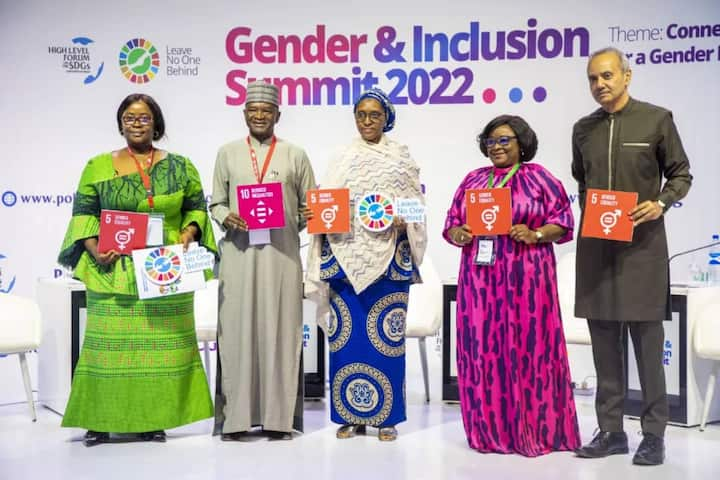The Small and Medium Enterprises Development Agency of Nigeria (SMEDAN) has trained 90 persons through The National Business Skills Development Initiative (NBSDI) in Bayelsa State.
At the closing ceremony on Thursday, starter packs were given to the 90 trainees who were among the 3,330 entrepreneurs who underwent five days of intensive training in a variety of professions in the 36 states and the Federal Capital Territory of Abuja.
To help them with food processing, laundering, and fashion design, they were given industrial sewing machines, washing, and grinding machinery.
Mr. Olawale Fasanya, Director-General of SMEDAN, who was represented by Mr. Uboboso Agilo, Bayelsa State Manager, characterized the Micro, Small and Medium-sized Enterprises (MSMEs) sub-sector as being essential to the Nigerian economy.
His words: “As you may be aware, the Nano, Micro, Small and Medium Enterprises (NMSMEs) sub-sector is a critical sub-sector in the Nigerian economy.
“They collectively account for a majority of the enterprises in Nigeria and also account for the highest number of jobs created in the economy.
“The most recent National MSMEs Survey of 2020 revealed that there are 39.6 million MSMEs employing 62.5 million persons (80.2% of labour force) and contributing 46.31% and 6.21% to nominal GDP and exports respectively.”
Fasanya said the NBSDI was designed “to provide entrepreneurship skills, vocational skills and provision of empowerment materials (equipment) to fill the capacity gap of the youths.”
The Bayelsa NBSDI’s coordinator, Mr. Uche Lawrence, a SMEDAN enterprise officer, said the participants through a rigorous training procedure that covered six modules, including the creation of business plans, access to financing, and business registration, among others.
When asked if the participants had enough time to learn the abilities they required, he responded that they were expected to build on what they had learned.
He claimed that the participants followed the rules of engagement and that the resource people tried their best to make the program as effective as they could.
Lawrence revealed that SMEDAN typically conducted evaluation through follow-up initiatives where they gathered broad survey data, selected those doing well, and helped them.
Some of the beneficiaries, including Ms. Ogionwo Blessing for fashion design, Mr. Clement Osagie for laundry, and Mrs. Joan Akuta for the food processing section, expressed gratitude to SMEDAN for the training and empowerment.
The awarding of certificates, starter kits, and allowances to the participants was the highlight of the event.










